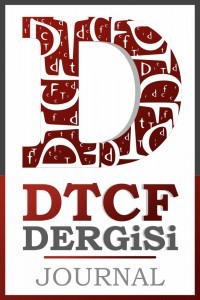Taşımalı Eğitim Programındaki İlköğretim Öğrencilerinin Durumları: Silopi Köyleri Örneğinde Bir Sosyal Değerlendirme
Bu çalışmanın konusu taşımalı eğitim programı içindeki öğrencilerin bir sosyal değerlendirmesidir. Kırsal alan içinde zorunlu sekiz yıllık ilköğretime bu sistem içinde devam eden öğrenciler araştırmanın hedef grubunu oluşturmaktadır. Araştırma Şırnak ili Silopi ilçesinin taşımalı e ğitim kapsamındaki köyleri üzerinde gerçekleştirilmiştir. Örneklem, araştırma kapsamında yer alan köylerden Silopi Merkez ilçeye taşınan 73 erkek öğrenciden oluşmaktadır, çünkü bu köylerden taşımalı eğitim sistemine katılan kız çocuğu bulunmamaktadır. Bu makalede araştırmadan elde edilen bulgular ışığında, öğrencilerin hane içindeki yaşamlarında karşılaştıkları sorunlar ile taşımalı e ğitim programı kapsamında yaşadıkları güçlükler değerlendirilmiştir.
Anahtar Kelimeler:
Eğitim, Zorunlu Temel Eğitim, Taşımalı Eğitim
Social Assessment of the Students in Bussing Program
The subject of this study is a Social Assessment of the students who are in the bussing school program. Students, who continue their 8-years compulsory basic education within the bussing school program in rural area, constitute the target group of the research. This research was conducted on the Silopi’ s villages which are including to the bussing school program, in Şırnak province. A Sample is consist of 73 male students who are transported from the villages within the research area to the centre of Silopi. Because, there was not any female student participated to the bussing school program from in these villages. This paper is to examine the situations of students in household lives and their problems within the bussing school program, in the light of research findings
Keywords:
Education, Compulsory Basic Education, Bussing Schooling,
___
- ALKAN, A. (2002) “Taşımalı İlköğretim ve Öğrenci Sorunları”, Bilim ve Aklın Aydınlığında , Eğitim Dergisi, Ocak, 3; Sayı:23 http://yayim. Meb.gov.tr. 12.04.2004
- BEHRMAN, J. R. (1990), The Action of Human Resources and Poverty on OneAnother: What We Have Yet to Learn LSMS Working Paper No. 74 (World Bank, Washington DC)
- BOYDEN, J., B. Ling & W. Myers (1998), What Works for Working Children? (Radda Barnen and UNICEF, Stockholm)
- BÜYÜKBOYACI, Ş. (1998) Taşımalı İlköğretim ve Sorunlar (Y.Y.L.T.) Çanakkale.
- BÜYÜKKARAGÖZ, S ve Şahin, H. (1995).“Taşımalı İlköğretim Uygulamaları”, Eğitim ve Bilim Dergisi C.19; 16 ,
- COOMBS, P.H. (1966) The Internetional Institute for Educational Planning, International Review of Education, Vol.12, No:3, s.333-345
- COOMBS, P.H. (1970) Waste at the Planning Stage, Prospects,Vol. No:4 s.18-22
- COOMBS, P.H. (1982) Critical World Educational Issues of the Next Two Decades, International Review of Education, Vol. 28,No:2, s.143-157.
- DEVEBAKAN, R. (2002). Taşımalı İlköğretim ve Öğrenci Sorunları, Bilim ve Aklın Aydınlığında Eğitim Dergisi, Ocak, 3; Sayı:23 http://yayim. Meb.gov.tr. 12.04.2004
- DRÈZE, J. & A. Sen, (1989): Hunger and Public Action (Oxford University Press, Oxford)
- DRÈZE, J. & A. Sen (2002), India: Development and Participation. (Oxford University Press, Oxford)
- FALLON, P. & Z. Tzannatos (1998), Child Labour: Issues and Directions for the World Bank (World Bank, Washington DC)
- KARAKÜTÜK, M. (1997).Taşımalı İlköğretim Uygulamaları ve Karşılaşılan Sorunlar (Y.Y.L.T.) Ankara.
- KOÇAK, Ş. (2003) Neden Taşımalı Eğitim www.cu.edu.tr/insanlar/semdeddin/Neden_Taşımalı_Eğitim.htm. 12.04.2004
- MEB, (2000), Taşımalı İlköğretim Yönetmeliği, Ankara: 2000,
- MEHROTRA, S.: (1998), Education for All: Policy Lessons from HighAchieving Countries.
- UNICEF Staff Working Papers, no. EPP-EVL-98- 005 (UNICEF, Geneva)
- ÖZTÜRK, H. (2001) Belçika’da ve Türkiye’de Zorunlu Eğitim, Nobel Dağıtım, Ankara.
- Yayın Aralığı: Yılda 2 Sayı
- Başlangıç: 1942
- Yayıncı: Ankara Üniversitesi
Sayıdaki Diğer Makaleler
Michel Butor’un "Dereceler" Adlı Romanında Anlatımsal Yapı ve Anlatım Yöntemleri
FANTASTİK EDEBİYATA GENEL BİR BAKIŞ - STEFANO BENNI VE STRANALANDIA
Rönesans ve Barok Döneminde Macar Okul Dramaları
Henryk Sienkiewicz’in Romanlarında Yurt ve Yurtseverlik İzleği
Sarah Kirsch’in Şiirlerinde Tabiat Betimlemesi
Eski Bulgar Edebiyatı ve Bizans Başkenti Konstantinopolis’in Eğitim ve Dinsel Kurumları
